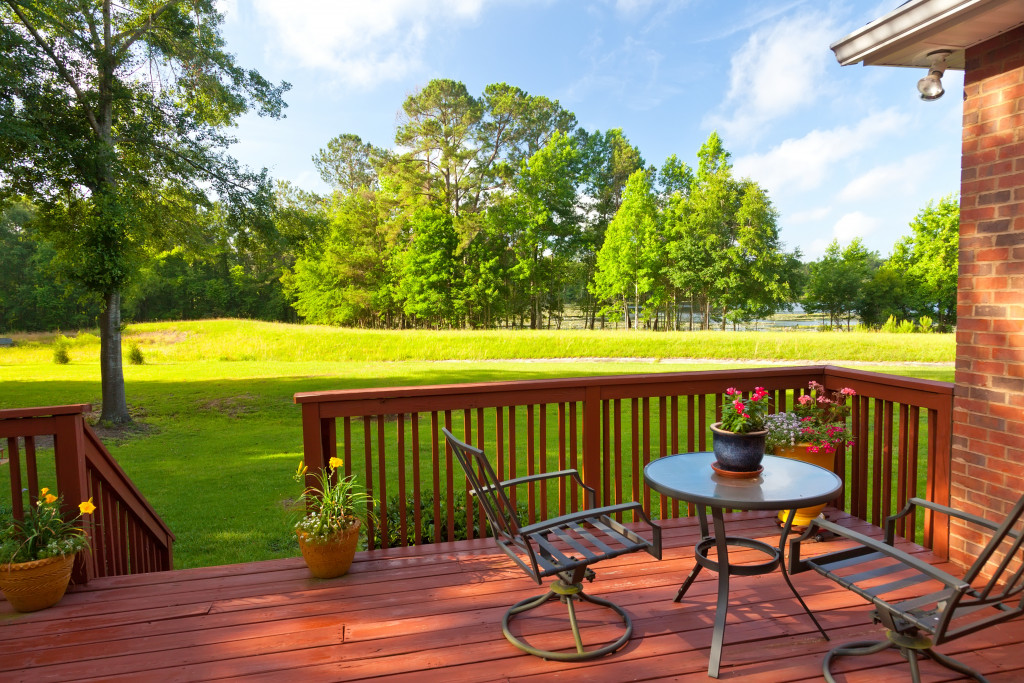- Water plants according to their type and avoid overwatering or underwatering.
- Eliminate pests using handpicking, natural predators, or professionals if necessary.
- Fertilize the soil with organic or synthetic products specifically for gardening.
- Weed regularly to improve soil texture and plant health.
Gardening is a beautiful way to spend time, get some fresh air, and enjoy the beauty of nature. It’s also an excellent way to ensure that your garden is in peak condition all year round. But what does it take to keep a garden looking its best? Here’s a look at some of the basics you need to know about gardening and how to maintain and care for your garden.
Watering Your Plants
Watering your plants properly is essential for keeping them healthy and vibrant. Depending on the type of plants you have, you’ll need to adjust how often you water them. For example, if you have primarily annuals or other more delicate plants, they may need to be watered daily during warmer months when there isn’t much rainfall.
On the other hand, if your garden consists mainly of perennials or shrubs that are hardier, they may only need watering once every few days or even less frequently in cooler weather. There are typically two things you need to avoid when watering your plants, such as:
Over-watering
Some gardeners think that over-watering their plants is a good thing, but it can be detrimental to your garden’s health. Too much water can cause root rot and other diseases and leach away necessary nutrients from the soil.
Under-watering
On the flip side, not providing enough moisture to your plants can also have disastrous effects. They won’t have the water they need to stay healthy and may end up wilting or dying if they don’t receive enough hydration.
Eliminating Pests

One of the main enemies of gardeners and their plants is pests such as aphids, mites, caterpillars, and slugs. Keeping them away from your garden is essential for keeping it looking its best. There are various methods for eliminating pests from your garden, including handpicking the pests off of your plants or using natural predators to control the population of destructive pests.
However, if the infestation is too severe and you’re worried that natural methods aren’t enough, you may need to hire professionals. For example, termite eradication may require specialized treatments, so it’s best to seek expert assistance if the infestation is severe.
Fertilizing Your Soil
For plants to grow properly, they need plenty of nutrients from the soil. If you don’t fertilize regularly, then your plants won’t be able to absorb enough nutrients from the ground, and they won’t thrive as well as they should. You can use organic fertilizer products such as compost or manure, or synthetic fertilizers, depending on what works best for your particular type of plants. Make sure that whatever fertilizer product you choose is formulated specifically for gardening purposes so that it doesn’t harm any animals or beneficial insects living in your garden.
Weeding Your Garden
Weeds are pesky little things that can quickly overtake your entire garden if left unchecked. To prevent this from happening, make sure that you pull out any weeds as soon as possible before they have a chance to spread their roots too deeply into the soil and become established. Hand-pulling weeds can be tedious, but it’s one of the most effective ways to get rid of them quickly and easily without damaging any other parts of your garden! Weeding comes with great benefits as well, such as:
Improved soil texture
When you weed your garden, you’re removing unwanted plants and allowing the beneficial ones to thrive. This means your soil will be more aerated, leading to better root growth and improved water drainage.
Improved plant health
Weeds can rob valuable nutrients from the soil, leaving your garden plants starved of those vital minerals needed for healthy growth and blooming. By weeding, you can ensure that your plants get the nutrients they need to grow and thrive.
Mulching Your Garden

Mulch is a great way to keep weeds at bay and help regulate the temperature of the soil in your garden. It also helps retain moisture in the soil and prevents water from evaporating too quickly, which is especially important during the hot summer. You can use organic mulch such as bark chips, shredded leaves or straw, or synthetic materials like plastic sheeting.
Keeping up with proper maintenance will help ensure that your garden stays healthy and beautiful throughout the year! Take these tips into consideration when caring for your garden and you’ll be rewarded with a vibrant, verdant space that invites relaxation and enjoyment. With a bit of TLC, you can keep your garden in excellent condition and make it a place where people love to spend time.

